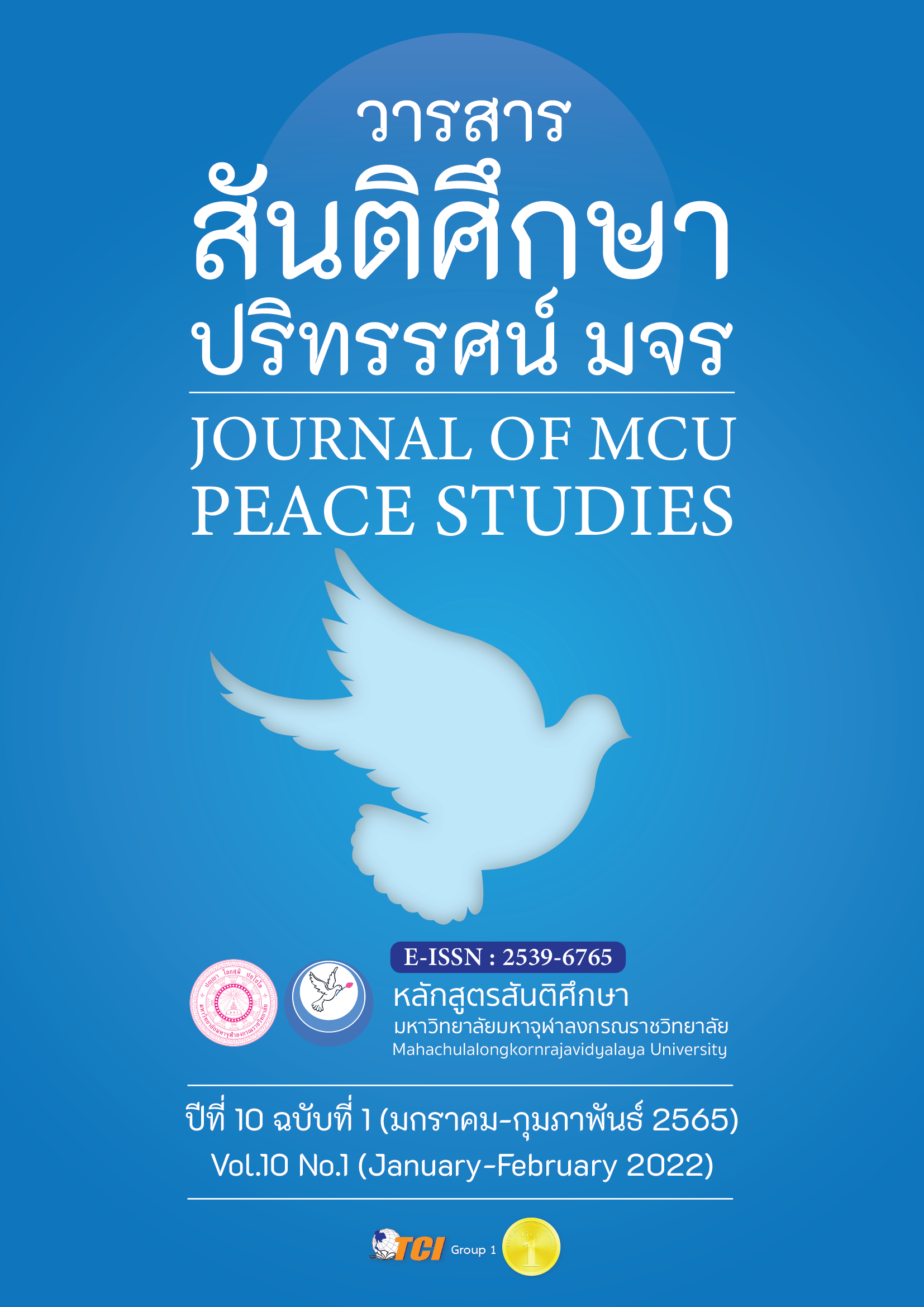Predicting in Economic Growth based on Indicator of Education Expenditure using historical data in Thailand
Main Article Content
Abstract
The aim of the paper is to choose the best model to predict in economic growth based on indicators of education expenditure over the period 2007-2018. The article uses regression analysis, to study the data, by employing different model. Specifically, the empirical result suggests that the education expenditure is most suitable for predicting GDP because of the highest value of R2. The result means that if the educational expenditure increases by 1 unit, it will increase GDP by 0.0126 units. Thus, education expenditure should be considered as a vital variable, which implies that education contributed to economic growth in Thailand during the estimation period.
Article Details

This work is licensed under a Creative Commons Attribution-NonCommercial-NoDerivatives 4.0 International License.
Views and opinions expressed in the articles published by The Journal of MCU Peace Studies, are of responsibility by such authors but not the editors and do not necessarily reflect those of the editors.
References
Abdellatif,T., Rodrigues, G., & Pauline, C. (2013). An empirical study of the impact of remittance educational expenditure and investment on growth in the Philippines. Appl Econom Int Dev, 13(1), 173-186.
Bank of Thailand. (2020). Thai macroeconomic indicators. Retrieved January 22, 2021, from https://www.bot.or.th/App/BTWS_STAT/statistics/ReportPage.aspx?reportID=409&language=th.
Cuesta, J. & Madrigal, L. (2014). Equity in Education Expenditure in Thailand. Development Policy Review, 32(2), 239-258.
Evensky, J. (2015). References. In Adam Smith's Wealth of Nations: A Reader's Guide (pp. 267-272). Cambridge: Cambridge University Press.
Government Fiscal Management Information System. (2020). Disbursement of Expenditure Classified by economic characteristics and ministry. Retrieved March 3, 2021, from http://dataservices.mof.go.th/Dataservices/GovernmentExpenditureEconomyMinistry.
Ifa, A., & Guetat, I. (2018). Does public expenditure on education promote Tunisian and Moroccan GDP per capita? ARDL approach. The Journal of Finance and Data Science, 4(4), 234-246.
Khan, H., & Bashar, O. (2015). Social Expenditure and Economic Growth: Evidence from Australia and New Zealand Using Cointegration and Causality Tests. The Journal of Developing Areas, 49(4), 285-300.
Islam, T. S., Wadud, A., & Qamarullah, B.T.I. (2007). Relationship between education and GDP growth: a mutivariate causality analysis for Bangladesh. Economics Bulletin, 3(35), 1-7.
Mukherjee, A. N. (2007). Public Expenditure on Education: A Review of Selected Issues And Evidence.Retrieved March 5, 2021, from https://ideas.repec.org/p/npf/wpaper/hd1.html.
Odit, M. P., Dookhan, K., & Fauzel, S. (2010). The Impact of Education on Economic Growth: The Case of Mauritius. International Business & Economics Research Journal, 9(8), 141- 152.
OECD. (2012). How does education affect the economy?, in Education at a Glance 2012: Highlights. Paris: OECD Publishing.
Pereira, J., & Aubyn, M. St. (2009). What Level of Education Matters Most For Growth? Evidence from Portugal, Economics of Education Review, 28(1), 67--73.
Phillips, D., & Ochs, K. (2003). Processes of Policy Borrowing in Education: some explanatory and analytical devices. Comparative Education, 39(4), 451-461.
Rehman, Z.U., Tariq, M., & Khan, M. A. (2018). The Role of Human Capital in Economic Development in the Selected Central Asian Countries. The Dialogue, 8(3), 235-244.
Takii, K., & Tanaka, R. (2009). Does the diversity of human capital increase GDP? A comparison of education systems. Journal of Public Economics, 93(7–8), 998-1007.
The World Bank Group. (2019) . Thailand. Retrieved January 22, 2021, from https://data.worldbank.org/country/thailand?view=chart.
The World Bank Group. (2020). Government expenditure on education, total (% of GDP). Retrieved January 22, 2021, from https://data.worldbank.org/indicator/SE.XPD.TOTL.GD.ZS?locations=TH.
United Nations Development Programme (UNDP). (2020). Human Development Data (1990-2018). Retrieved January 22, 2021, from http://hdr.undp.org/en/data#.
World Economic Forum. (2020). Human Capital Report 2015. Retrieved March 5, 2021, from https://reports.weforum.org/human-capital-report-2015/economies/#economy=THA.
Yousif, K. A. (2008). Education Expenditure and Economic Growth: Some Empirical Evidence from the GCC Countries. Journal of Developing Areas, 42(1), 69-80.


